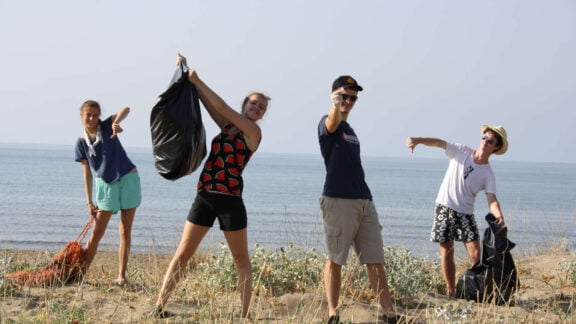Dr George Tassiopoulos, from the University of East Paris examines the timeless question of whether Greece belongs to the East or the West. He looks at Greece’s recent foreign policy shifts in relation to the Mediterranean and the nation’s pivot towards greater alliances with Israel, Egypt and Saudi Arabia.
Last week, the sky was grey both in Paris and in the North of France. During a heavy rain, strong wind, and dozens of thunder strikes, I was watching a low resolution, black and white video on YouTube.
On 12 June, 1976, in Greek parliament, former statesman Konstantinos Karamanlis declared that “Greece belongs politically, defensively, economically and culturally to the West.”
However, in summer 2021, all this looks a little bit obsolete. Greece’s foreign policy seems oriented towards the East. Especially since the deployment of four UAE air force’s F-16 in Crete in August 2020; the Greek Egyptian maritime deal on 6 October, 2020; the joint training exercise of the Royal Saudi Air Force with the Greek one in mid-March 2021, and the emerging partnership between Greece and Israel.
So, the same question came back to the surface as usual. The 200-year-old Greek dilemma of belonging either to the West or to the East. This was an endless and thrilling topic during my studies, a long time ago. And, even today, I still cannot give a simple explanation about such a complicated matter. However, I do not believe that this is the real question in July 2021.
Let us remember British statesman Lord Palmerston’s saying “We have no eternal allies, and we have no perpetual enemies. Our interests are eternal”.
This is exactly what has been happening in the East Mediterranean during the last few years. Taking into consideration that since WWI it is a high inflammable area, where checks and balances are of vital importance for maintaining peace and stability.
However, during the last few years, Turkey has been more ambitious and has been seeking, somehow, to extend its influence in Syria, Iraq, Libya, the Aegean Sea and in Cyprus and to strut all over the world.
But how can Turkey’s great power ambitions be explained?
READ MORE: The Cyprus Issue: Turkey’s Erdogan is no friend of Australia
Turkey’s power ambitions
I always considered James Carville’s saying “The economy, stupid” as an interesting idea. Just check out at the evolution of the Turkish GDP. Between 1960 and 2020 it grew up from $7.99 billion to $719.54 billion. That is more than 9000 per cent growth, which has lead to Turkey currently being the 19th biggest economy in the world. At the same time, with Turkey’s 84.3 million population (2021), Turkey has become the 17th most populated country in the world. More populated than countries such as Germany (83.9 million) or France (67.4 million). So, all this could whet the appetite of ambitious geopolitical aspirations in the Eastern Mediterranean.
After all, it is not necessary to be a specialist to understand that this could trigger a chain reaction both in East Mediterranean and in the Middle East, leading to new alliances. So, there is no surprise that Greece and Cyprus strengthen now military and economic ties with Israel, Egypt, Saudi Arabia, and UAE.
Despite that, in my opinion, there is no real dilemma between the West and East for three main reasons:
Firstly, the biggest military power of the European Union, France, is a key part of the equation. Nowadays, the longstanding Greek-French alliance, seems even stronger. Greece recently bought 18 4th generation Dassault Rafale jets. And, in February 2020, the French Navy’s aircraft carrier “Charles de Gaulle” participated in a join military exercise with the Republic of Cyprus.
READ MORE: Foreign mediation in eastern Mediterranean dispute between Greece, Cyprus and Turkey
Secondly, since 1980, Greek-Turkish relations are always within the framework of relations between the EU and Turkey, which is a matter of vital importance. This is especially the case when tension rises, ie, when the EU leadership visited the Greek-Turkish land borders at the Evros River in March 2020.
Thirdly, US President Joe Biden’s election is expected to reshape American foreign policy. On 24 April, the US recognised the 1915 Armenian genocide. With a more outward-looking America back in international relations, there could be greater changes in store in comparison with the last four years, especially in Southeast Asia and in the Middle East.
The real question now is to always make the best choices for maintaining peace in the East Mediterranean and develop business opportunities between different nations by applying a win-win strategy for the years to come. Even though, as everybody knows, it is easy to say, but much more complicated to apply.
Dr George Tassiopoulos is a Greek-French political scientist, who holds a PhD in Political Science from the University of East Paris. Born in Athens, he has lived in France for the past 20 years and teaches geopolitics in a business school in Paris.









